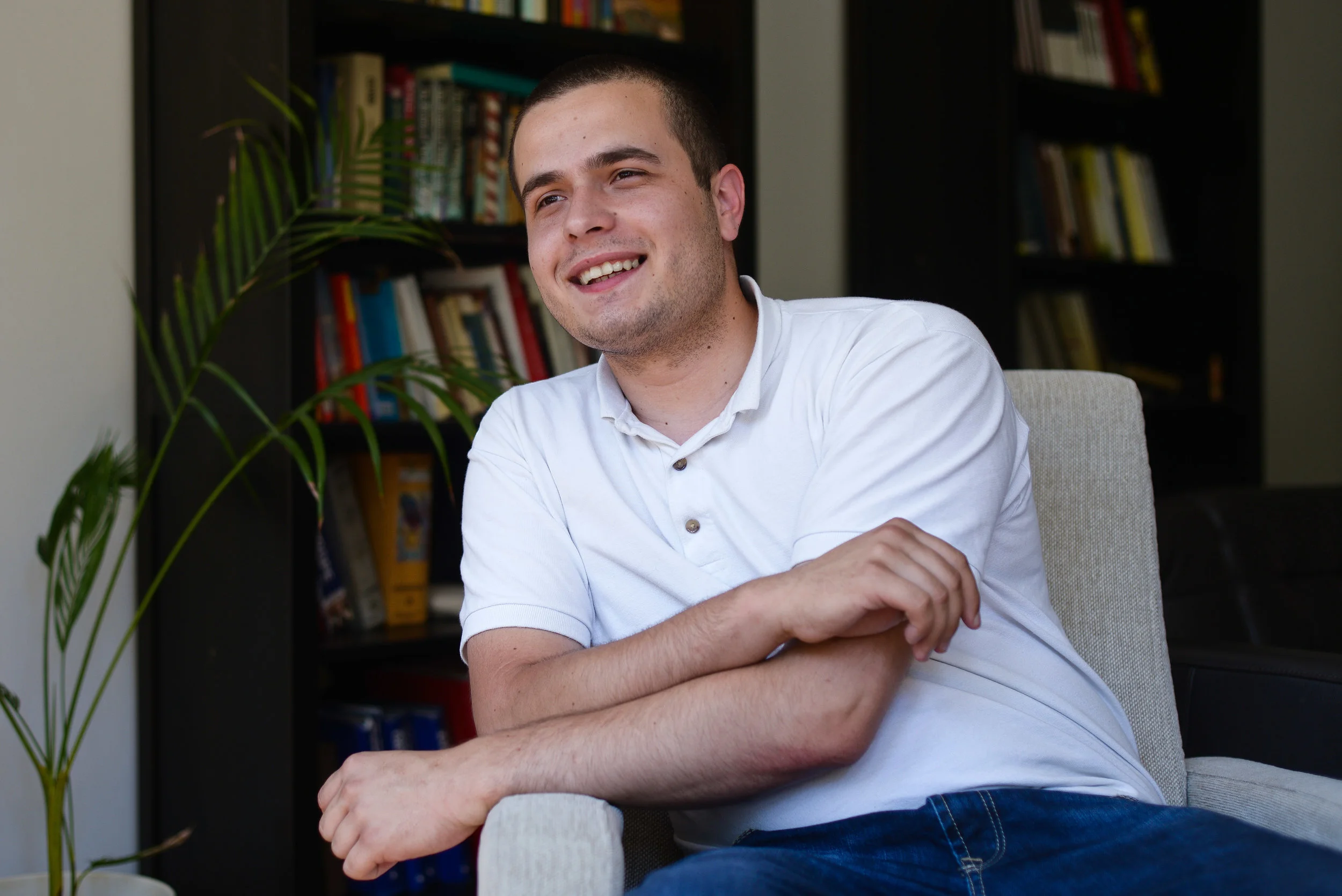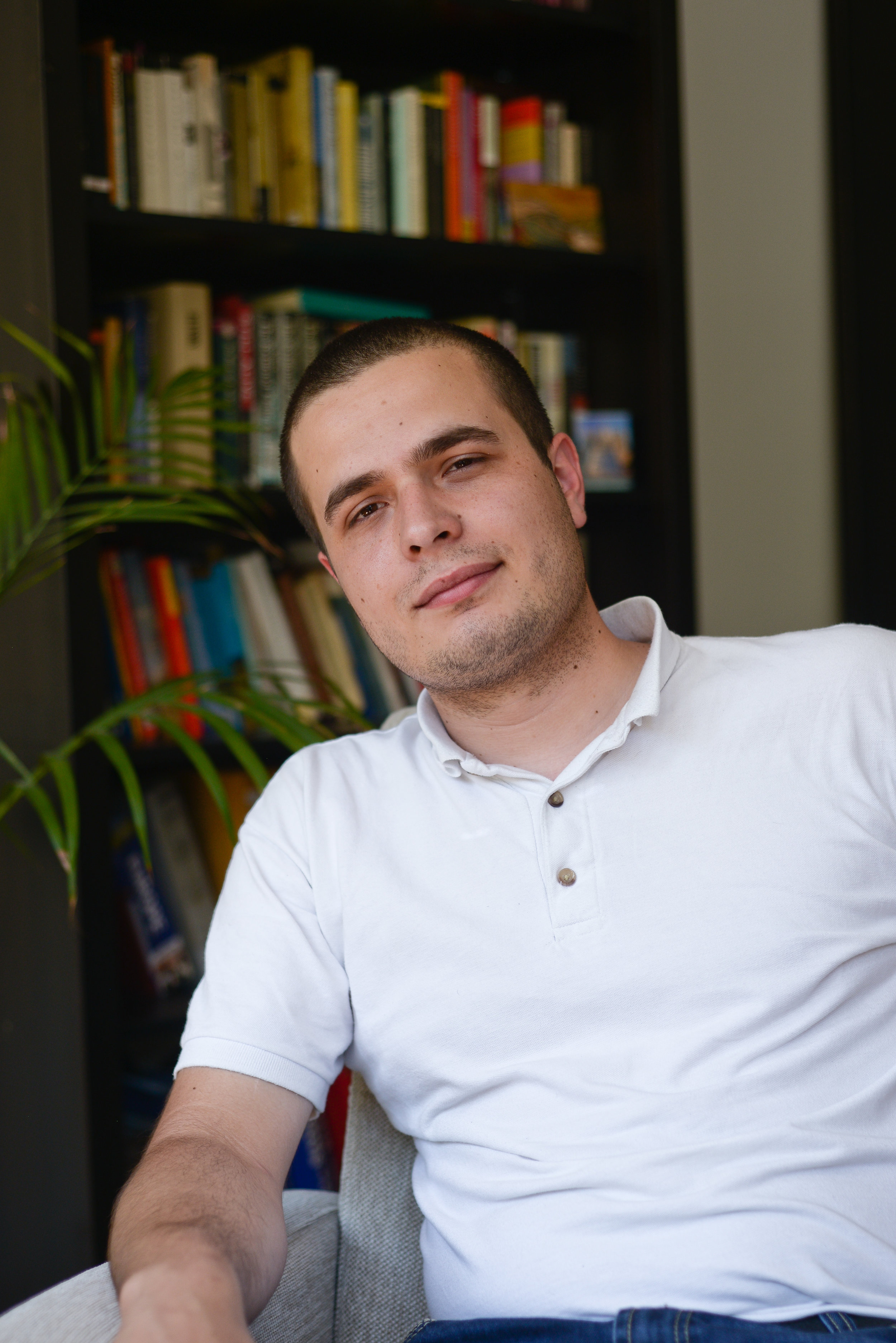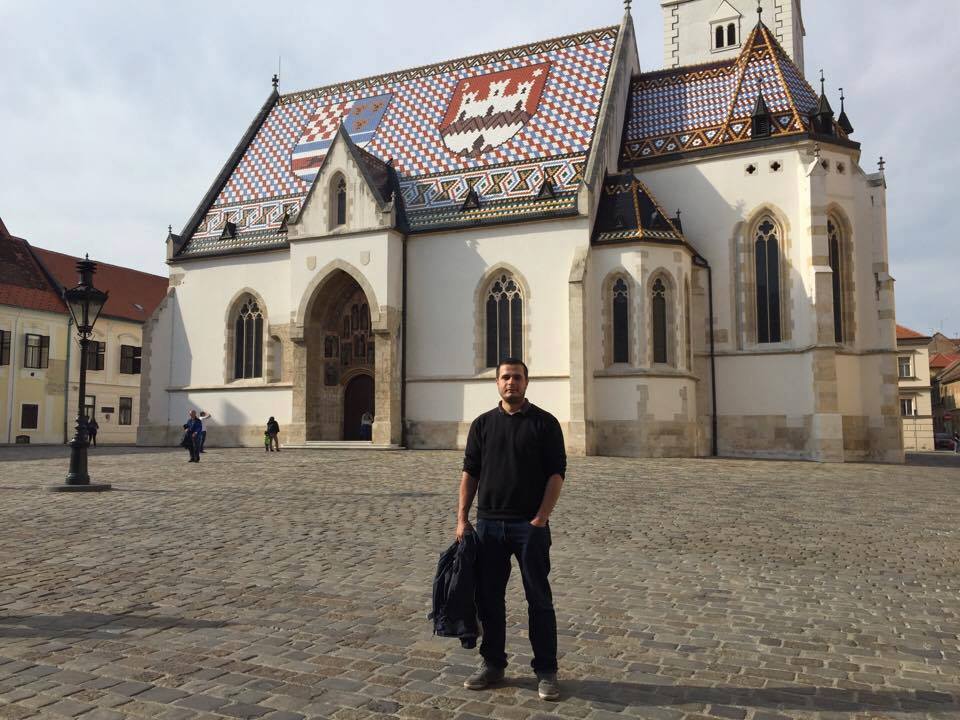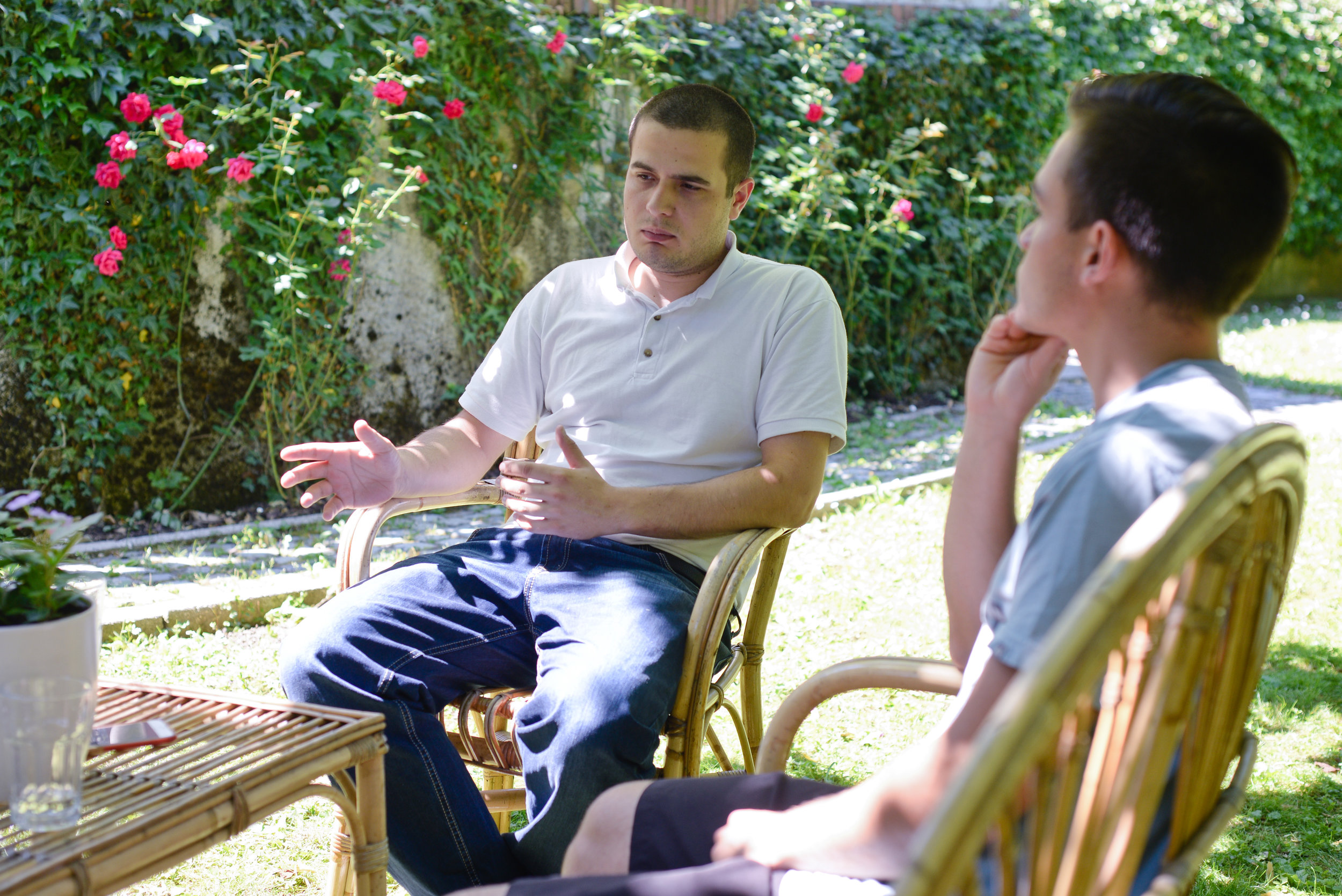“My past is colored with nationalism. I was somebody who hated other groups in the Balkans... I felt God calling me here to use my past experience- bad experience- to make something new and to work something great”
Since ECSWP's founding, it has been a goal for our work to include and engage regional students. Finally, in Spring 2017 we had a regional student audit our philosophy course taught by Dr. Taylor, “War & Peace: Philosophical & Theological Perspectives”. Luka Djukic is a student from Novi Sad, Serbia and he was able to join us through our Regional Scholarship for the Study of Conflict and Reconciliation. After auditing the philosophy course and presenting in our annual conference Luka received our ECSWP Certificate for the Study and Practice of Peace and Reconciliation. At the end of May, resident directors Jordan and Ingrid sat down with Luka for an interview about his time with us, and his hopes and goals for the future.
According to Luka, studying at ECSWP was particularly interesting because “my past is colored with nationalism…I was somebody who hated other groups in the Balkans, especially Croats. [But] I felt God calling me to come here and use all my past experience—bad experience—to make something new and to continue to work something great.” Luka spent much of his teenage years involved in Serbian Neo-Nazi circles, and has mentioned that one of his favorite books during that time was Mein Kampf. After his life turned around through several major events, Luka traded Mein Kampf for Exclusion and Embrace (Miroslav Volf); he began reading philosophy texts at a tremendous pace, developing a thorough outlook on life. If you find yourself discussing philosophy with Luka, you will be amazed by his extensive knowledge of philosophical texts and subjects, which is particularly impressive as he has only studied for a few years and is self-taught. If you ask Luka what he likes to do in his free time, he will most likely reply simply, “read books.”
Asked about peace, Luka replied that after his studies he has realized that “it is important to not be just a peacekeeper—it’s easy to say, ‘I want peace,’ and to be passive. I think it's important to be a peacemaker, somebody who is active.” We are encouraged by Luka’s passion to be a peacemaker, and we are proud to have had him join us and to represent our Center as a certificate holder.
Below are several questions from our interview with Luka.
Can you explain how you heard about the program and how you decided to come to the program?
My pastor called me one day and told me about the program. I had told to him three or four months before about my desire to engage in reconciliation and peace…I knew from that very call that the program was something I really want to do, and I had no doubt from that moment until whether I should come or not. I knew I needed to come, so it was an instant decision. I saw this as an opportunity to encounter my past in some sense—to think about it and to think what I can do with it. I have a desire for learning and reading, and when I heard it was philosophy and literature, I knew it was perfect for me. How can I take things from past and rebuild them in some new way that can be productive and can bring peace? Peace in me, peace in the Balkans.
What did it mean for you to study here?
It was a unique opportunity because it combined my favorite subjects in my life: literature, philosophy, history, theology—that was the first reason. It was unique because this class is from a Christian perspective—for me that kind of atmosphere is unique, with themes of reconciliation and peace. [It was a] challenge because everything I learned here, the reading I had, it was connected with me in some personal way; because the theme is violence and how to respond to violence, and I know that I was violent and I can still act violently, it was…some sort of therapy for me, like gaining knowledge of how I should react to violence and how I can find a way to make peace in the Balkans and reconcile groups. I came here to fulfill my mind but also to fulfill my heart, and to get healing of my heart.
How have your studies here contributed to your understanding of reconciliation in the Balkans? How will you connect your study with your life in Serbia?
First I think that all the readings here and the classes I had here, they raised many questions in me that I will pursue the answers for. I didn’t find every possible answer about violence and reconciliation in the Balkans—I found here direction of where to go to get those answers. I learned about different theological and philosophical perspectives that inspired me with a desire to continue that line of learning. But the most important part is that I have a desire now to find answers. Maybe I cannot find them, but still I will try to find answers to the question: 'How do we stop violence, especially in Balkans'?
What do you see that most people in the Balkans think about peace or reconciliation?
That’s a difficult question. I can see that Balkans right now is not on the way to peace and reconciliation, and actually we don’t know what peace or reconciliation is. We have some very vague understandings, and we misunderstand both concepts—even among Christians… they are not aware of what it really means to reconcile, to engage in peace, to live in peace, and to be a peacemaker.
What do you think it means to be a peacemaker?
Another difficult question. I think its important to not be just a peacekeeper—it’s easy to say, ‘I want peace,’ and to be passive. I think it's important to be a peacemaker, somebody who is active. We cannot wait for peace to come among us, for it to fall from heaven or something. We need to engage in peacemaking and that requires strength, motivation, desire, and belief. Reconciliation is a process that can come only after many things are done. Like I said, I don’t think we are on that way. We have many unsolved questions here in the Balkans: in our history, in our present situations and everything. We need to deal with this. We cannot stand aside. I think that Christ came to bring peace and salvation: he wasn’t passive; he was active every moment of his life and in his teachings. He gave us the example.
What do you want to do with what you’ve learned here?
First of all I think I want to put these things in practice... Not just in academics, but also in everyday life, with friends and colleagues: to put dialogue into practice, to always be open, and to respond to violence in a positive way... I am not sure exactly what I can do and what I will do but I will do something that is for sure.
What would you tell someone who was interested in coming as a student?
Well of course I would tell them to come... because we need more people in Serbia who will engage with these questions with these problems, and this program is the best way to start with that. This program is not something complete, it is only a foundation for everything you’re going to do after here. You need to come here to this program to get a foundation, to hear questions, to see what are the problems you are wrestling with, and after that you can go pursue actions and solutions.
What were some of the highlights of the program?
It is difficult to say one thing, because the whole time here was a blessing. I think that I loved the challenges that I met here: living as a Serb in Croatia—I think I loved that because I understood some things about me and about living as a foreigner. I loved almost every reading, I received nice insights, and the most important thing here that I loved was the atmosphere of a family. Before I came here I thought of the program as some academic institution—you come here to learn and to read and that’s all. But I found a friendly atmosphere, family, acceptance and love and I think that is the most special thing I received here.
We are thankful to Luka for his willingness to take a bold step to join us, and the depth of knowledge and practical application he enhanced our classes with. We are also thankful to those who made Luka’s participation in our program possible. We look forward to seeing his work in the coming years.
